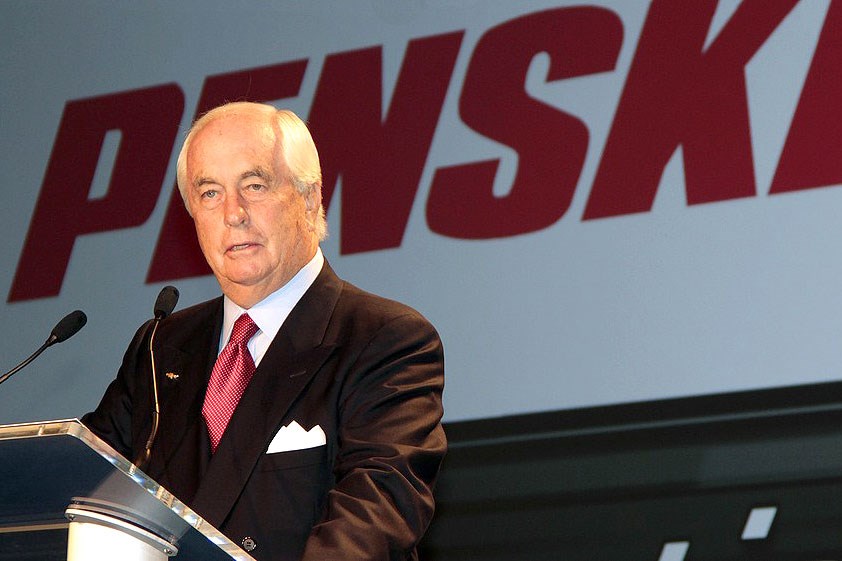AM100 dealer groups seeking to expand need to think broadly about their business opportunities both inside and outside the UK.
Few UK franchised dealers currently own operations overseas, and many have plenty of opportunities to expanding their dealership portfolios and consolidate the sector here. Nevertheless, London-based Inchcape has operations including brand distribution licences and retail outlets in Asia and Australasia, eastern Africa, mainland Europe, Russia and South America, while Nottingham-based Pendragon owns successful premium-brand dealerships in California.
The direction of investment is more commonly the other way around, with businesses targeting UK dealer groups. In the past 20 years, US-based Penske Automotive Group and Group 1 Automotive have bought major dealer groups Sytner and Spire Automotive respectively. South Africa’s Super Group bought Allen Ford in 2014 and has just bought Essex Auto Group (see page 8). In 2008, Roy McAllister, chief executive of Sandown Motors in South Africa, bought Mercedes-Benz dealerships in the UK from Jacksons CI. Chinese investor Lei Shing Hong bought UK operations from Mercedes-Benz Retail Group, and Japan’s Marubeni Corporation owns Norton Way and RRG.
Success in overseas markets can be ensured by identifying a suitable acquisition or business partner and “road testing each other”, according to Roger Penske, chairman of Penske Corporation, which owns Penske Automotive Group. Doing so allows the acquirer to retain crucial local market expertise.
At the 2017 National Automobile Dealers Association (NADA) convention in New Orleans, Penske outlined how the international dealer group, which has 53,000 staff, has expanded through buying initial equity stakes in target businesses. In Yokohama, Japan, it formed a 49% joint venture with the Nicole Group and Penske said he expects to build on that.
It has also remained committed to building scale with premium brands. In Italy, it is on track to become the country’s largest BMW, Audi and Porsche retailer following its takeover of eight dealerships in the Bologna region last October, and in 2015 it took majority control of 20-site Jacobs Gruppe in Germany, a business it had first formed a joint venture with 10 years earlier.
Elsewhere in Germany, it has a 50/50 joint venture with Autohaus Nix, and owns dealerships representing Aston Martin, Lamborghini, Bentley, Ferrari, Maserati and Porsche. Some 40% of its businesses are international, and 77% are premium brands.
Penske also told NADA delegates about the group’s diversification and innovation. In the USA it bought Carsense, a five-site used car supermarket business, which Penske believes has a business model that is scalable to other markets across America. That acquisition in December came just weeks after Sytner, Penske’s division here, took over the UK’s fourth-largest used car specialist, CarShop, again with an ambition to expand its footprint across the country (Read AM’s news insight on the CarShop acquisition at am-online.com/SytnerCarShop).
Penske said his businesses need to expand their used car operations: “With new cars going up and used car prices being pulled down, there’s a huge opportunity there. We need to build on our used car operations.” He said dealers must become “more vertical”, doing more of the glasswork, tyres, repairs etc that the car buyer needs, and noted that in the 2008 recession, the motor retail industry “was kept alive by parts and service revenue”.
In the US, Penske also owns heavy truck dealerships, which were cost-effective targets although he said the cost of acquisition has risen. He considers trucks a new revenue stream for the group, which is already heavily involved in truck rental – yellow Penske trucks have become an regular sight across the US.
Penske said he is looking for bigger potential acquisitions to build scale in its markets, and said the challenge is deciding where to spend the capital going forward. On integrating acquisitions, Penske said: “I think in order to make sure the transition goes smoothly, you need clear communication and you need to have a solid game plan. We enter each of those opportunities with a clear direction of where we need to go in order to make this work within our organization.
“Each situation is different, obviously, but I think the toughest challenge is making sure everyone knows the plan and is on the same page and moving in the right direction to reach our goals.”


















Login to comment
Comments
No comments have been made yet.